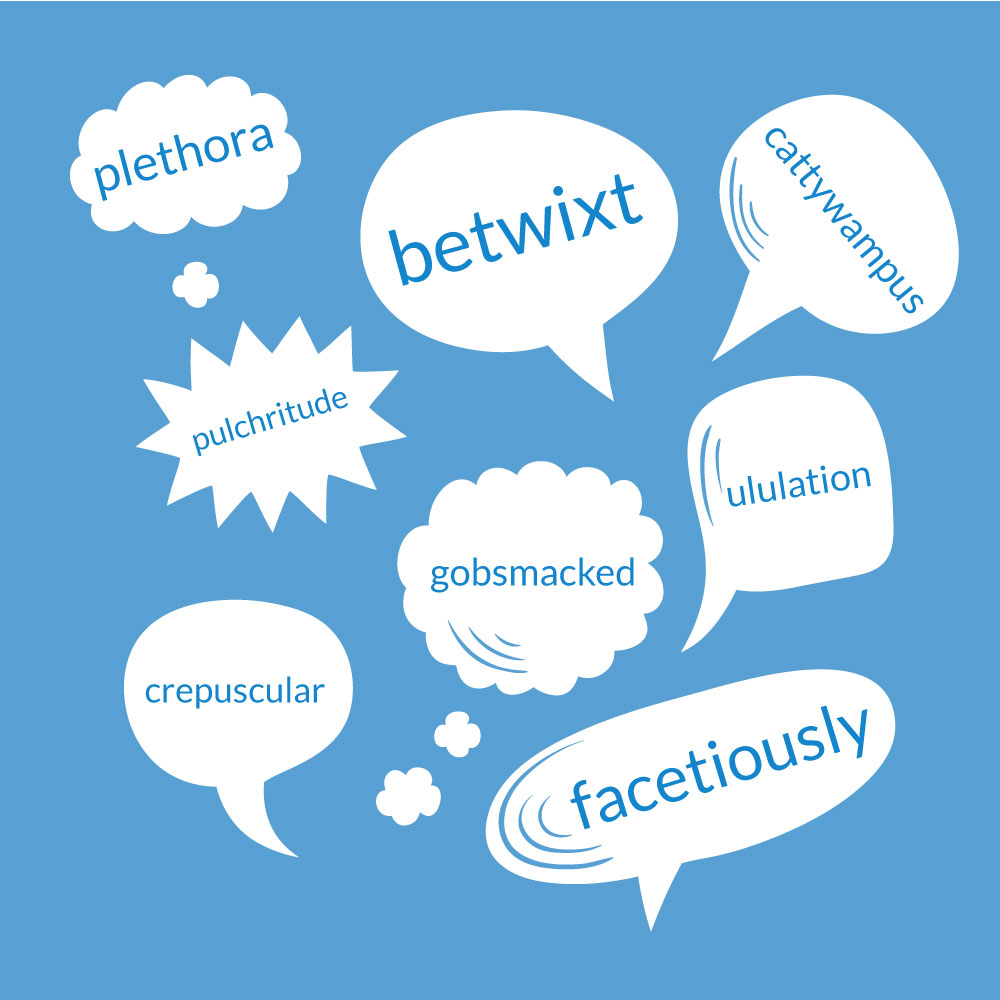I asked people on Twitter about words they love irrationally much. I got quite a few responses. Actually, I got so many that when I tried to retweet them all, Twitter finally told me I had reached my daily tweet limit. And did again the next day.

The words that people love irrationally much are many and varied. But a few words came up again and again, and it’s interesting to see what they have in common.
For one thing, most of them have three or more syllables. For another, most of them have dominant sounds of voiceless stops (p, t, k) and voiceless fricatives (sh, s, th, f) plus liquids (l, r). So they often have a soft, crisp, sliding kind of sound. Voiced stops (b, d, g) and voiced fricatives (zh, z, voiced th, v) seem underrepresented.
Most of the favourites are words you don’t often see or use; in fact, some of the respondents mentioned how they almost never use the word. From that you may guess that many of the words are for uncommon things, but quite a few of them have much more common synonyms; the rarer words just have a tone or flavour suitable only for certain contexts (especially hifalutin ones). This includes betwixt, a bewitching archaic word for between; copacetic, a more modern confection that expresses OK or acceptable more fancily; plethora, which in common usage is just a soft, plush synonym of surplus or surfeit; and persnickety, which could be fussy or particular but somehow sounds more… fussy and particular. And while twilight is a nice word we use at certain times, the adjectival crepuscular seems like a more expensive or precious way of talking about it.
It also may seem like an oddly ugly word for a pretty thing. One of the most popular beloved words is beloved for exactly that reason: pulchritude means beauty but sounds somehow ugly to English ears, as several people pointed out. But other words seem to have a harmony between sound and sense — susurrus, that whispering sound; the awkward gobsmacked and cattywampus; and ululation, which sounds much like what it names.
Facetiously seems popular at least in part because, as several people pointed out, it has all the vowels in order (and is more fun than abstemiously). Moist is well known for being intensely disliked by some people, and I suspect that has something to do with how much some other people like it. Penultimate and antepenultimate could be replaced with second-last and third-last, but they have that “ultimate” flavour and those extra syllables.
Some words have it all: enjoyable meaning, enjoyable sound. How can you not like serendipity and serendipitous? They’re such delightful discoveries, and that’s what they mean, too. The idea that we have a word that refers to throwing something or someone out the window, and that it’s a fussy and complicated-sounding long word that might bring to mind a scuffle resulting in its object, makes defenestration (and defenestrate) popular. And then there’s the word for the smell of wet rocks and pavement that you get after a rain, a word that combines crisp stops and liquids: petrichor. A simple pleasure with a lapidary word — and possibly the word most often mentioned by my Twitter respondents.
Use these words in joy. And infrequently.
Previous post from James Harbeck: How to Write Gleefully
The Editors’ Weekly is the official blog of Editors Canada. Contact us.
Discover more from The Editors' Weekly
Subscribe to get the latest posts sent to your email.
